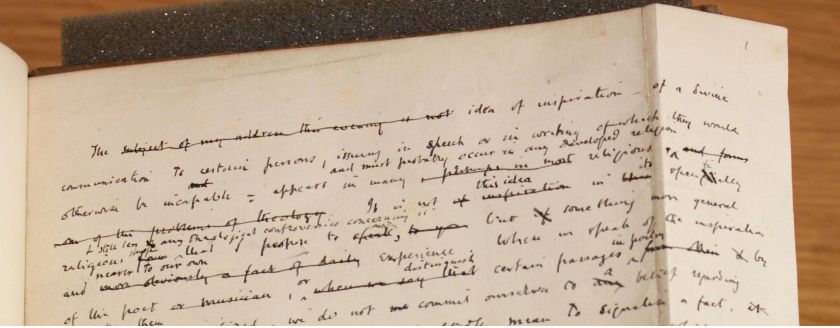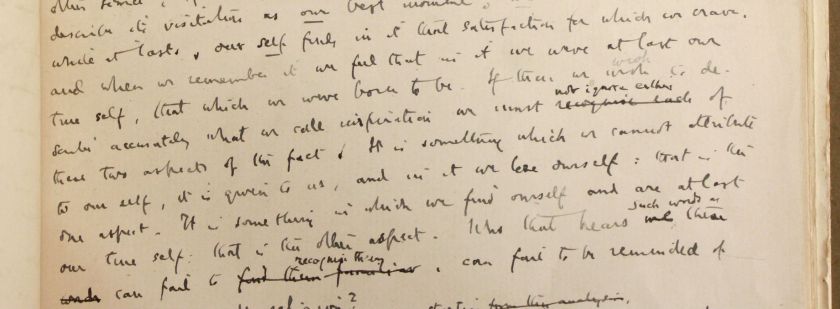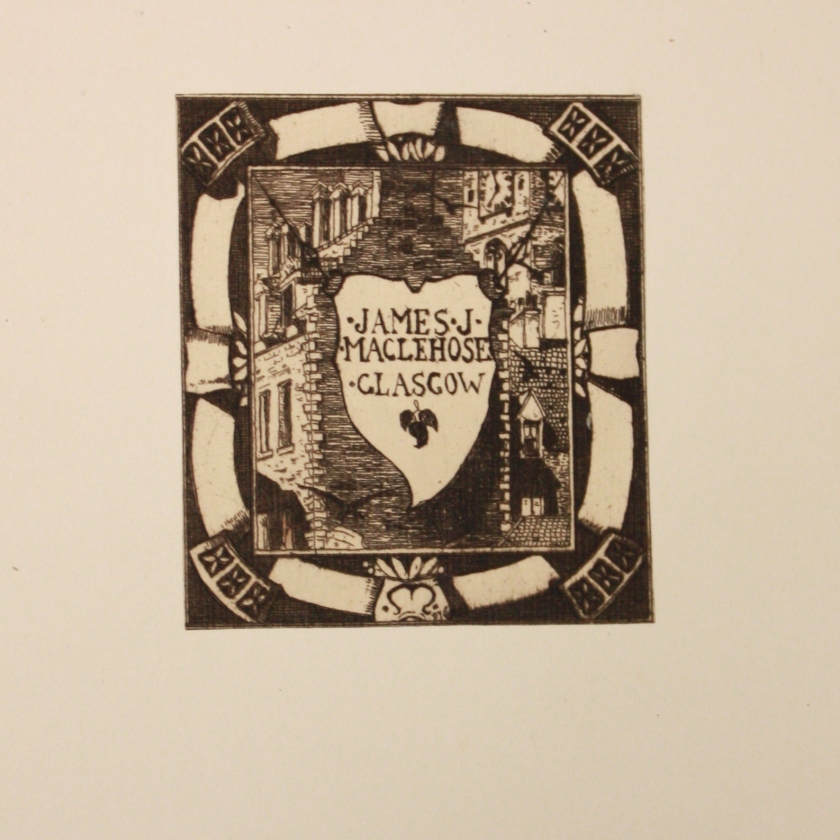

A.C Bradley studied at Balliol from 1868 having won an exhibition (a type of scholarship). He was elected a Fellow in 1874 and was a popular teacher in English and Philosophy. Balliol’s manuscript collections show Bradley’s involvement in the intellectual life and politics of the College during his time here; forming friendships with T.H. Green and R.L. Nettleship and earning the opposition of the Master, Benjamin Jowett. The latter is hinted at in Bradley’s entry in The Masque of B-ll—l, forty satirical poems about Balliol members printed as a broadsheet in 1881:
‘Inspiration’ was first given as an address in a Church in Glasgow, where Bradley was Regius Professor of English Language and Literature at the University from 1889. He held the post until 1901 when he returned to Oxford as Professor of Poetry. Bradley’s address formed the basis of the essay of the same name in his book, A Miscellany (MacMillan, 1929) [Balliol Library: 47 g 26 Ground Floor].
Throughout the manuscript, Bradley crosses out and rewrites as he tackles the question of what is meant by ‘inspiration’ in the secular context of poets and other thinkers. Bradley identifies three conditions of inspired thought. Firstly, that it is new; secondly, that it strikes the thinker as superior to their habitual thoughts; and thirdly that it should come upon them suddenly. He goes on to identify a paradox about the perceived origin of inspired thought which he feels is a point of comparison to religious inspiration:
“[inspiration] is something which we cannot attribute to ourself, it is given to us, and in it we lose ourself; that is the one aspect. It is something in which we find ourself, and are at last our true self; that is the other aspect.”


The manuscript has been bound in boards covered with grey paper and contains the bookplate of Glaswegian publisher and bookseller James J. Maclehose, designed by Sir David Young Cameron. It joins other manuscripts by A.C. Bradley at Balliol including the rare survival of an undergraduate essay, with the title ‘Does Literature tend necessarily to decay?’ and academic papers on Shakespeare’s work, the area of criticism for which Bradley is most famous today.